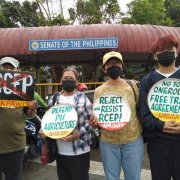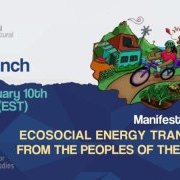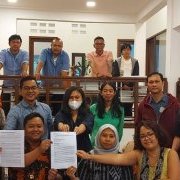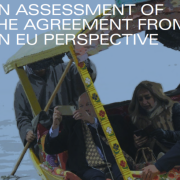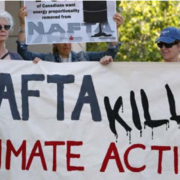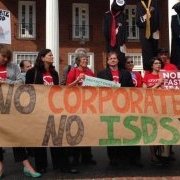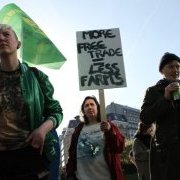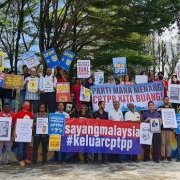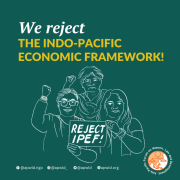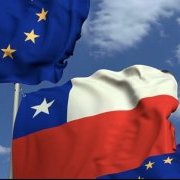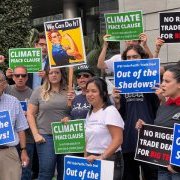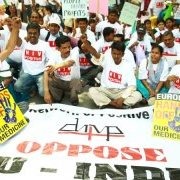21-Feb-2023
The Kilusang Magbubukid ng Pilipinas
The Kilusang Magbubukid ng Pilipinas said the Philippines’ agriculture sector stands to lose the most under the Regional Comprehensive Economic Partnership (RCEP) trade agreements.
15-Feb-2023
Peace Brigades International - Canada
Colombia is now facing thirteen investor-state dispute settlement (ISDS) claims in process and eight more in initial stages that total an estimated USD $2 billion.
13-Feb-2023
Foreign Policy in Focus
A new manifesto critiques the "clean energy" transitions of the Global North and offers an alternative vision from the Global South.
9-Feb-2023
Indonesia for Global Justice
The Indonesian CSOs assesses that the I-EU CEPA Agreement will deepen the crisis of democracy, climate and social justice for all Indonesian people. For this reason, the MKE Coalition urges the Government of Indonesia to not submitting the agreement before they can guarantee legal certainty for the fulfillment of democratic rights, guarantees for the protection of human rights, social justice, and sustainable environment.
8-Feb-2023
Rosa Luxemburg Stiftung
The EU-India trade deal is a neoliberal deal, entrenched in the idea that more trade between the two markets will bring significant benefits. Benefits there will be, for Indian and European multinationals but people and the planet will significantly lose from this deal.
8-Feb-2023
Rosa Luxemburg Stiftung
Investor rights in the expired North American Free Trade Agreement continue to undermine democratic decision-making and climate policy in Mexico, Canada, and the United States.
30-Jan-2023
La Via Campesina
Declaration supported by more than 100 peasant organisations, to understand why the EU-MERCOSUR FTA violates the rights of peasant farmers and other people working in rural areas.
20-Jan-2023
Public Citizen
The State Department requested the $15 billion case be thrown out on jurisdictional grounds, as President Joe Biden revoked the permit for the pipeline on his first day in office, long after the US-Mexico Canada Agreement was in effect.
18-Jan-2023
Third World Network
The Indo-Pacific Economic Framework (IPEF) seeks to impose a structure, set of procedures and criteria to govern the Parties’ regulatory decision making at the central government level.
9-Jan-2023
Forum Kedaulatan Makanan Malaysia
We who signed this memorandum would like to express concern about Malaysia’s participation in and ratification of the CPTPP which will have a large negative impact on farmers, livestock breeders and fishermen as well as on the food security and sovereignty of Malaysians in the future.
22-Dec-2022
People Over Profit
With the pressing issues of rising prices of basic commodities, the declining real wages and purchasing power of workers, and the destruction of local agriculture, the IPEF and its Four Pillars will degrade the lives of the people and the planet.
15-Dec-2022
APWLD - Asia Pacific Forum on Women, Law and Development
APWLD members and partners attending the APWLD Convening on Trade and Corporate Power in Asia Pacific in Chiang Mai, Thailand stand together to oppose the IPEF which is currently on its first round of negotiations in Australia.
13-Dec-2022
America Latina Mejor sin TLC
Joint statement by the Platform "Chile without Free Trade Agreements" network, MPs and social organizations.
12-Dec-2022
Ngā Toki Whakarururanga
Māori communities will be impacted upon by almost every pillar of IPEF. We will
therefore be monitoring closely and exercising influence over all those elements.
9-Dec-2022
Forum for Trade Justice
Ongoing FTA negotiations will adversely impact farmers, fishers, patients, traders and impinge on a progressive digital industrialisation strategy.



